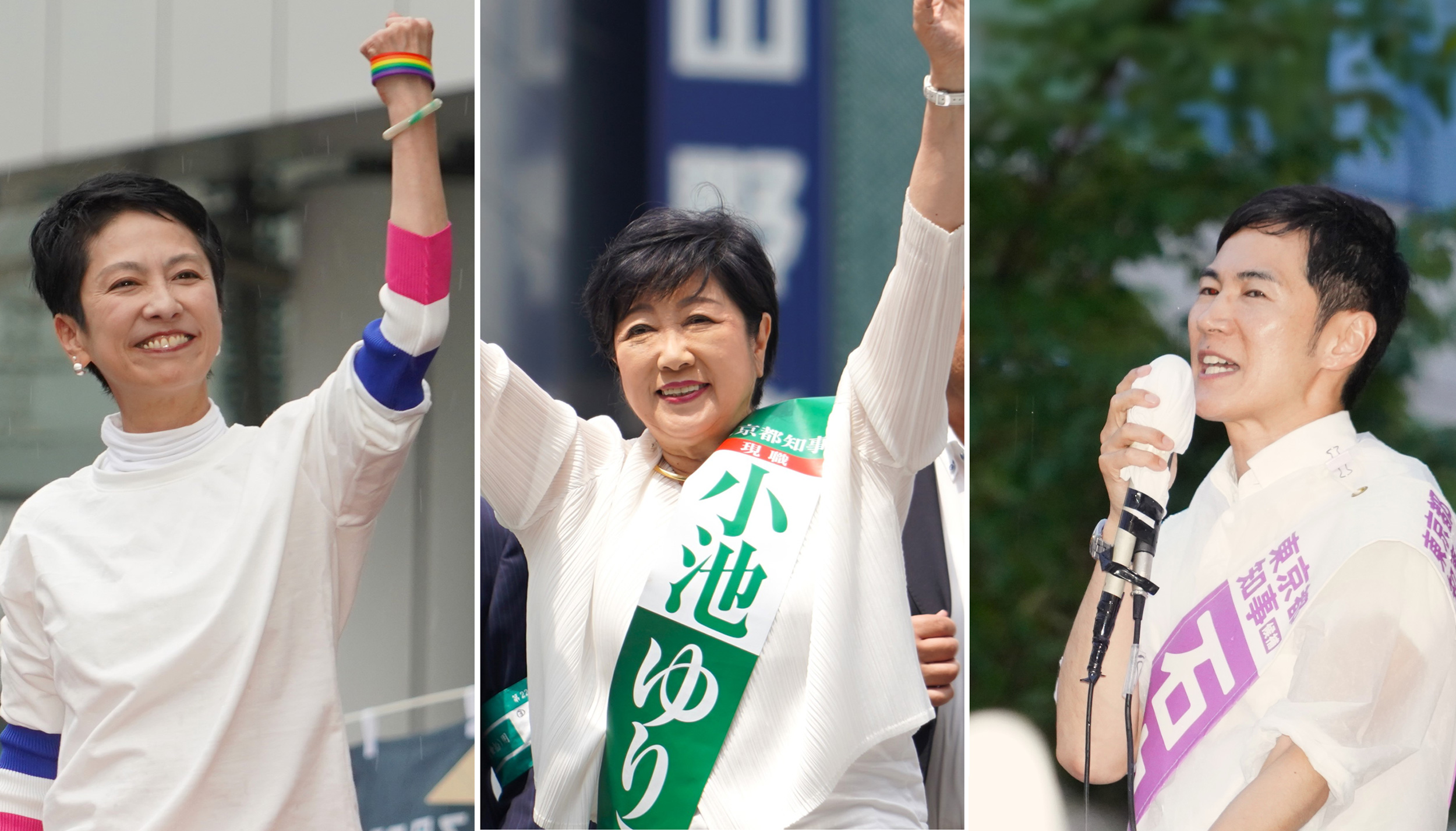Issue:
August 2024
Hunger for ratings allows Japan’s politicians to escape scrutiny, as the recent Tokyo governor election proves

Was the Tokyo Governor’s election symptomatic of a sick democracy? It is possible. The campaign revealed several abnormalities that should be food for though not only for politicians but also for journalists.
A record 56 candidates ran for the governorship, but a large number intended only to disturb and personally benefit from the race. You may have seen their official posters. Many poster boards featured only serious candidates, while eight candidates were denied a presence on other boards due to lack of space. And some were plastered in posters featuring images that bordered on soft pornography.
The reason for the anomaly was that the Party to Protect the People from NHK, which ran 24 candidates, sold its spots on the poster boards to other candidates. The party sold at least 1,050 places for ¥25,000 each. The election became a money-making exercise for the benefit of candidates who had no hope of being elected. Incredibly, the practice – tantamount to hijacking the democratic process – is not illegal. And the right to freedom of expression means candidates can use whatever poster design and message they like.
For weeks the election was portrayed as a battle between two strong women: the incumbent governor Yuriko Koike and Renhō, a former upper house lawmaker from the main opposition Constitutional Democrat Party of Japan. Much of the media predicted the race would be between these two women. But that is not how it turned out. Many voters, especially young women, supported Shinji Ishimaru, the former mayor of Akitakata in Hiroshima Prefecture, who posted wildly popular campaign videos on YouTube and TikTok. The fact that the mainstream media overlooked Ishimaru and his largely online campaign says a lot about the gap that exists between newspapers and young people. Ishimaru finished second, a long way behind Koike, but with a comfortable lead over Renhō in third.
The use of online media by politicians will only grow in the years to come … I believe this will weaken the political consciousness among voters. That much was clear from the results in Tokyo. Ishimaru rarely mentioned policies, including on his YouTube channel. The edited version of a speech he made outside Tokyo Station on July 6 – the final day of the campaign – lasts 3 minutes and 42 seconds, but is dominated by platitudes, while he says nothing about his policies. Many of his other videos are in the same vein, along with lots of positive comments from voters. It made me wonder why voters chose to back certain candidates when there is so little serious discussion of policy.
Ishimaru belongs to a new breed of politicians who issue statements and use certain techniques to shut down dissenting voices. Donald Trump uses similar tactics, but in Japan the lack of media scrutiny means politicians are able to act almost with impunity.
Japanese politicians are rarely grilled in live TV interviews. Even debates are barely worthy of the name. Ishimaru likes to poke fun at journalists during interviews and press conference, knowing that they are unable to answer back. On occasion, he loses his temper with reporters and posts the incidents online to reinforce his reputation as an outsider taking on the establishment.
Japan’s media need to hone their investigative skills and think more seriously about public interest journalism, especially when it comes to elections. Major newspapers and politicians have created a "win-win relationship" through the press club system, but reporters find it impossible to engage with politicians like Ishimaru through this outdated approach. And old school politicians will find themselves on the wrong end of election results if they stick to the same tried and tested methods. Journalists, too, should learn how to adapt to the changing environment surrounding election campaigns, or else risk being wrong-footed again by unconventional politicians like Ishimaru.
By learning how to counter the approach taken by the new breed of populist candidates hoping to sidestep scrutiny, journalists should be able to draw out their true intentions and, by doing so, expose their weaknesses.
This will not only protect the public’s right to know but will also force media companies to think twice about relying on “controversial” politicians to boost their audience ratings. Too often, politicians like Ishimaru are invited on to “wide shows” to entertain and comment on current affairs while escaping serious scrutiny. And that is not healthy for democracy.
Karyn Nishimura is a correspondent for the French daily newspaper Libération and Radio France.

